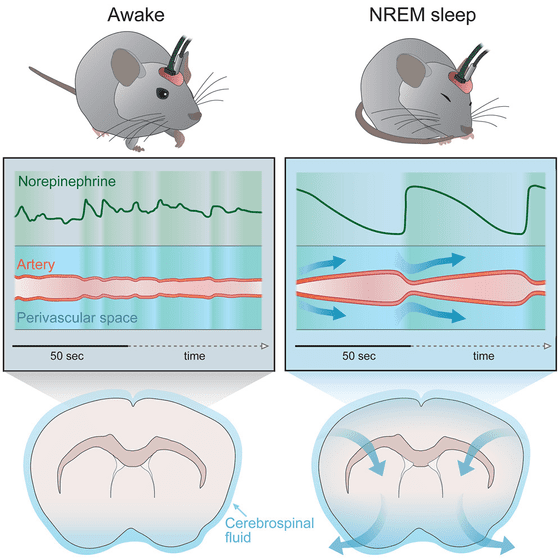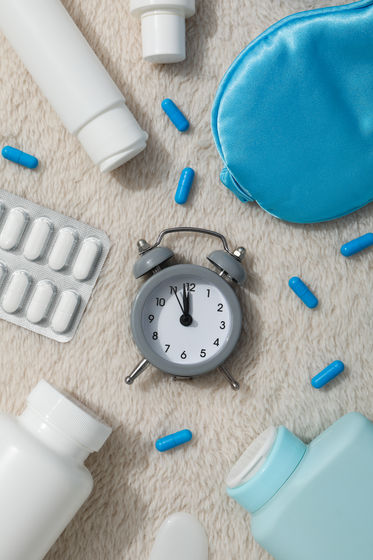The reason why sleeping pills do not lead to 'good quality sleep' has been revealed

Some people who have had difficulty falling asleep and have resorted to sleeping pills may have had the experience of falling asleep but not waking up feeling refreshed. Experiments using mice have shown that some sleeping pills may inhibit the system that flushes waste products from the brain.
Norepinephrine-mediated slow vasomotion drives glymphatic clearance during sleep: Cell
Early study reveals why sleeping pills may not supply the best-quality snooze | Live Science
https://www.livescience.com/health/sleep/early-study-reveals-why-sleeping-pills-may-not-supply-the-best-quality-snooze
The brain is protected by multiple barriers, including the blood-brain barrier, but like every cell in the body, brain cells produce a lot of waste and need to be cleaned regularly.
The glymphatic system, which cleanses the brain, works by flushing impurities collected by the cerebrospinal fluid from brain cells into the lymphatic system, and it has been found that the function of this system is impaired in people with Alzheimer's disease.

The glymphatic system is constantly operating, but evidence suggests that most of its most important functions occur during sleep, but it's unclear exactly what drives these vital processes.
In a study published in the scientific journal Cell on January 8, 2025, neuroscientist Natalie Haugland of the University of Oxford in the UK and her colleagues conducted brain scans of sleeping mice and found that the hormone
Norepinephrine, also known as noradrenaline, is well known for its function in the so-called ' fight or flight' response .
According to the research team, during 'deep sleep,' the final stage of non-REM sleep, which is the transition from wakefulness to sleep, norepinephrine is released in small waves about every 50 seconds.

When norepinephrine levels peak, blood vessels in the brain constrict, reducing blood flow and allowing cerebrospinal fluid to flow through the lymphatic system, creating space for cellular waste products to collect, before norepinephrine levels drop again, resetting the system and starting the cycle over again.
However, when mice were given the sleep-inducing drug
While this process has not yet been confirmed in humans, previous research has shown that the human brain works in a similar way to mice during deep sleep, and if this is driven by norepinephrine, the same phenomenon may occur in the glymphatic system of humans who take sleep medication.
So while sleeping pills like zolpidem can help you fall asleep quickly, they can also unexpectedly impair the quality of your sleep, putting you at risk for illness.

'There are already some clues that sleeping pills don't lead to optimal sleep, such as associations between sleeping pills and increased all-cause mortality and cognitive impairment,' said Haugland, lead author of the study.
The team plans to investigate the long-term effects of sleeping pills on the brain's ability to clear its nighttime sleep, but if this proves problematic, it may become necessary to develop new sleeping pills that don't disrupt the glymphatic system, Haugland said.
Related Posts:
in Science, Posted by log1l_ks







